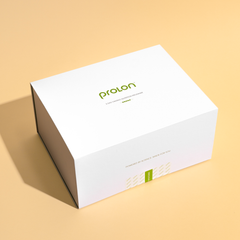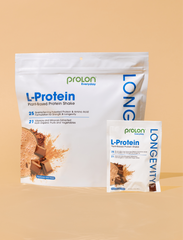
How To Improve Gut Health: 9 Tips for a Happier Gut
The gut microbiome is a diverse community of microorganisms—bacteria, viruses, fungi, and other microbes—that reside in your gastrointestinal (GI) tract and play a major role in your well-being, both mentally and physically. Everyone’s microbiome is unique, shaped by factors like diet, age, health conditions, and environment.
Why Is the Microbiome Important?
The gut microbiome plays a vital role in supporting overall health, influencing digestion, immunity, mental well-being, and more. It helps break down nutrients like complex carbohydrates and fiber that your body can’t digest on its own, ensuring optimal nutrient absorption, and also strengthens your immune system (70% of which lives in your gut), helping to defend against infections, allergies, and autoimmune issues. The microbiome also aids in synthesizing vitamins, regulating metabolism and hormones, and supporting detoxification. Additionally, the gut lining acts as a protective barrier, allowing essential nutrients to pass through while blocking harmful substances from entering the bloodstream. Through the gut-brain connection, a balanced microbiome has been linked to improved mental health.
What Are Signs of an Imbalanced Gut?
Acknowledging the essential role gut health plays in overall well-being, it’s important to recognize when it might be out of balance. Some signs of an unhealthy gut are easy to spot, while others may require the insight of a healthcare professional. Keep in mind, these symptoms can have multiple causes, so it’s best to consult a doctor for an accurate diagnosis.
Signs of an imbalanced gut may include fatigue and anxiety, as the gut’s role in nutrient absorption directly impacts energy levels and the gut-brain connection. Digestive discomforts like bloating, gas, diarrhea, constipation, and acid reflux are also common indicators. Sudden weight changes, whether gain or loss, can result from disruptions in nutrient absorption, and skin issues such as acne, eczema, or rosacea may also stem from gut health imbalances. Additionally, increased sensitivity to certain foods, even healthy ones, could point to an imbalance in the gut microbiome.
How To Improve Your Gut Health
Improving your gut health starts with simple, mindful steps that include:
-
Limit Intake of Sugar and Artificial Sweeteners
High sugar intake not only disrupts blood sugar levels but can also harm the gut microbiome by feeding harmful bacteria and reducing the diversity of beneficial microbes, while artificial sweeteners may also negatively impact gut health by altering the microbiome composition.
-
Prioritize Fiber
Foods like chickpeas, lentils, and whole grains are excellent sources of insoluble fiber, essential for supporting a healthy gut; nutrient-rich foods such as these help feed beneficial gut bacteria, promoting a diverse and balanced microbiome. Try replacing sugary, processed foods with these fiber-packed options.
-
Consider Fasting
Prolonged fasting (greater than 72 hours) has the potential to influence gut health by supporting the healthy diversity of gut bacteria. The Fasting Mimicking Diet (FMD) supports cellular rejuvenation which may lead to a more balanced, diverse gut microbiome and enhanced growth of beneficial strains such as Lactobacillus and Bifidobacterium - early research in mice has shown promising results to back this up. Additionally, users of Prolon’s 5-Day FMD report benefits like reduced bloating upon completion of the program.
The FMD may also strengthen the gut-brain connection, a critical pathway linking gut health to cognitive function. By promoting beneficial bacteria growth, supporting gut barrier function, and activating immune cells, the FMD may contribute to a healthy gut, mental clarity, and overall well-being.
-
Incorporate Probiotics
Probiotics are often referred to as live “good” bacteria; they help support a balanced gut environment and keep harmful bacteria in check. You can incorporate probiotics into your diet through fermented foods like kimchi, sauerkraut, tempeh, kombucha, and yogurt, and through probiotic supplements. Prolon’s L-Biome is a daily supplement specifically formulated to mimic and maintain a healthy post-fast gut and combines targeted probiotics, DHA, and prebiotics, with advanced dual-cap technology to ensure optimal absorption.
-
Include Prebiotics
Adding prebiotics, otherwise known as food for gut microbes, to your diet can significantly improve gut health by feeding the beneficial bacteria in your microbiome, helping them thrive and maintain balance. Foods high in prebiotics, like leeks, legumes, and apples, include non-digestible fibers that act as fuel for these living organisms. By promoting the growth of these beneficial bacteria, prebiotics help enhance digestion, support nutrient absorption, and strengthen the gut lining.
-
Get Enough Sleep
Research shows a link between sufficient sleep and a healthy balance of bacteria in your gut. Subpar sleep, however, may cause negative changes in the gut microbiome. Additionally, poor gut health can lead to fatigue, creating a self-perpetuating cycle.
-
Keep Active
Exercise enhances gut motility, improving the efficiency with which your body moves food through the digestive tract. In some cases, exercise has also been found to increase gut microbiome diversity. Incorporating activity doesn’t have to be overwhelming—small, daily movements like walking, stretching, or gardening, or mindful choices, like walking instead of driving, can support overall well-being and a healthy gut.
-
Manage Stress
Stress can disrupt the gut-brain axis by weakening the gut barrier and reducing beneficial bacteria diversity and increasing inflammation, which may affect gastrointestinal function. To support gut health, try stress management techniques like meditation, yoga, deep breathing, or grounding exercises to promote relaxation and balance.
-
Don’t Overuse Antibiotics
Antibiotics are powerful tools for fighting infections and can be life-saving when used appropriately. However, because they target bacteria, they may affect your gut microbiome by killing the “good” bacteria, along with the “bad.” If your doctor prescribes antibiotics, be sure to take them as directed, and consider supporting your gut health during this time by including probiotic-rich foods or probiotic supplement like L-Biome.
Your gut health affects countless aspects of your body, from your digestion to your skin to your immune system. By implementing even one of these tips into your routine, you are taking a step towards cultivating a happy, healthy gut.
Sources:
- Factors Influencing the Gut Microbiota, Inflammation, and Type 2 Diabetes | PMC
- Gut microbiota functions: metabolism of nutrients and other food components | PMC
- The Association Between Intestinal Bacteria and Allergic Diseases—Cause or Consequence? | PMC
- The Brain-Gut Connection | Johns Hopkins Medicine
- Trait Energy and Fatigue May Be Connected to Gut Bacteria among Young Physically Active Adults: An Exploratory Study | PMC
- Gut health | BetterHealth The Epidemiology of Obesity: A Big Picture | PMC
- Exploring the Impact of the Gut Microbiome on Obesity and Weight Loss: A Review Article | PMC
- Gut–Skin Axis: Current Knowledge of the Interrelationship between Microbial Dysbiosis and Skin Conditions | PMC
- High Intake of Sugar and the Balance between Pro- and Anti-Inflammatory Gut Bacteria | PMC
- Dietary fiber: Essential for a healthy diet | Mayo Clinic Gut microbiome diversity is associated with sleep physiology in humans | PMC
- Fermented Foods as Probiotics: A Review | PMC
- Trait Energy and Fatigue May Be Connected to Gut Bacteria among Young Physically Active Adults: An Exploratory Study | PMC
- How Exercise Can Lead to a Healthy Gut | Cleveland Clinic
- The Gut Microbiota in Inflammatory Bowel Disease | Frontiers













